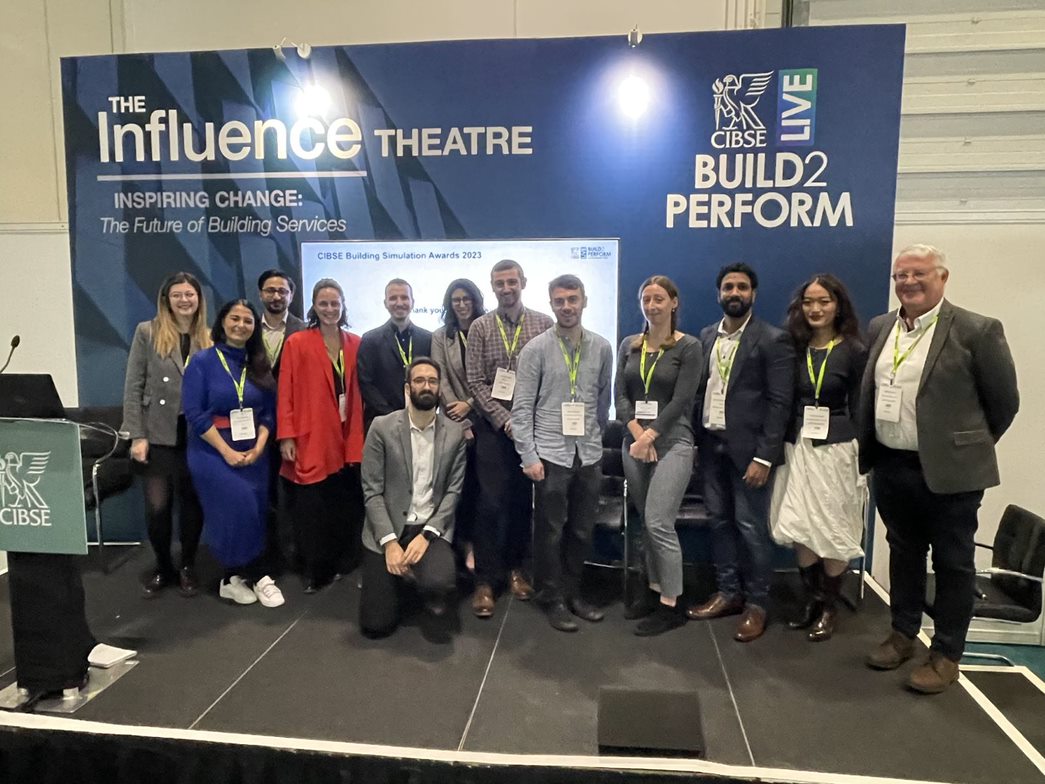
The CIBSE Building Simulation Awards have recognised two modellers for their work in driving down carbon in retrofits and housing.
Georgios Koronaios MCIBSE, associate sustainability engineer at Savills Earth, won the CIBSE Building Simulation Award for his project Integrated modelling workflow for retrofit building performance optimisation. A refurbishment and extension of an existing two-storey office building in Weybridge, the project implemented various modelling techniques from RIBA Stage 2 to 4 to optimise the building’s performance and adhere to net zero carbon standards.
The approach encompassed detailed modelling for fabric optimisation, operational energy, thermal comfort, loads assessment, compliance modelling, and daylight. Notably, Nabers modelling resulted in a 5.5-star rating, surpassing the initial target of 5.0 stars.
Gabriela Costa, head judge and CIBSE Building Simulation Group committee member, highlighted the breadth and depth of this retrofit project, which included a review of passive design features, integration of mixed-mode ventilation and detailed modelling using a variety of tools.
Divyanshu Sood, doctoral researcher at University College Dublin, was named CIBSE Young Modeller of the Year. The judges were impressed by his strong technical outlook in driving energy modelling in the field of domestic archetypes. This is significant in driving the net zero carbon transition.
The accurate predictions achieved with energy modelling will make a significant contribution to the transition of large-scale building stock to net zero. Sood’s dedication to knowledge sharing and application of energy modelling skills for charitable causes was also recognised.
There was a record number of submissions to both categories, and the judges said it was satisfying to see how the industry and academic applications of dynamic building thermal simulation have spurred exploration of advanced modelling techniques. These are playing a vital role in shaping integral national
and international policies.
